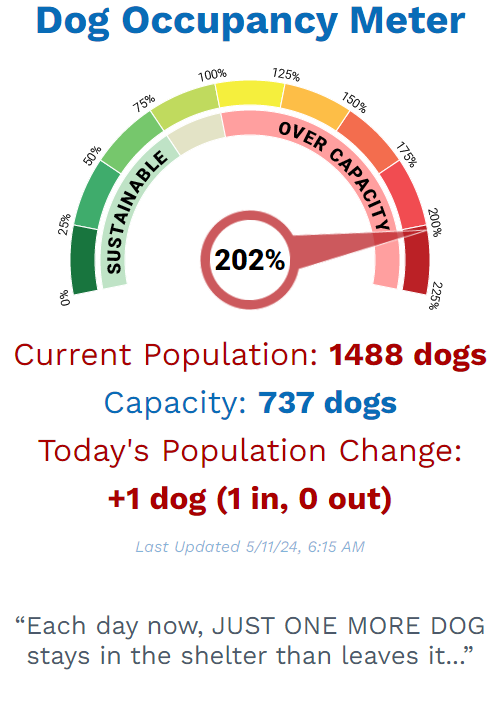
Frequently Asked Questions
Lost and Found Pet Information
Start by searching your immediate area and asking neighbors, letter carriers, and delivery drivers if they've seen your pet, as pets often don't go far from home. Some have even been known to hide in a neighbor’s garage.
Check with veterinarians in the area your pet was lost to see if any injured animals have been turned in.
Create flyers with a clear photo of your pet, your contact information, and details about where and when they were last seen. Distribute these in your neighborhood and at local businesses.
Use the lost pet search on our website or visit local animal shelters in person since shelter staff might not recognize your pet from a description alone. Additionally, make use of online resources such as Nextdoor, Facebook, and PawBoost as well as using Petco Love Lost to search through a national database that uses patented facial recognition technology to find lost pets quicker and easier.
If you find a pet, first check if it has any identification tags with contact information. If it does, try to contact the owner directly. If the pet has no tags or you can't reach the owner, consider shelter at home, or take the pet to a nearby animal shelter or veterinarian to scan for a microchip, which might provide owner information.
In the meantime, you can post about the found pet on social media, community bulletin boards, and lost and found pet websites. Notify local animal shelters and LA Animal Services about the found pet, providing a description and where it was found. If you're able to, you might consider temporarily caring for the pet while searching for its owner. Remember to keep the pet safe and separate from your own pets until you can confirm its health and behavior.
Adopting
When you adopt a dog, cat, or rabbit from LA Animal Services, your furry friend goes home with you already spayed or neutered, vaccinated, microchipped and for LA City residents, the first year license fee for dogs.
To adopt a pet, you can visit LA Animal Services' shelters or our website to view available animals. Each pet's profile includes specific information about the animal. Adopting a pet from a shelter not only gives a homeless animal a loving home but also makes room for other animals in need. Visit our page about the adoption process, and our staff at the shelters can guide you through filling out an application form. They can also help match you with a pet that suits your lifestyle and home environment.
A government-issued identification (driver's license, state ID, passport) with your name and photo is required to adopt a pet. Payment can be made by cash, check, or credit card (name on credit card must match the name on the photo identification).
The cost of adopting an animal varies on the type of animal, age, and any discounts, specials, or events running at the time. For a full list of current prices - see our price list. LA Animal Services Centers accept payment by cash, check, or credit card (name on credit card must match the name on the photo identification).
Absolutely, and we encourage you to. LA Animal Services' even has a program called Seniors for Seniors which matches senior companion animals (seven years and older) from Los Angeles Animal Shelters with senior adults (62 years and older). Senior adopters receive 50% off the adoption fee which includes microchipping, vaccinations and the spay/neuter surgery. See adoption fees.
Some seniors (62 years and older) living in the City of Los Angeles may also qualify to receive a $10.00 dog license. Learn more about this program and the benefits of adopting here.
Fostering
Fostering is ideal for animal lovers who want to contribute positively to animal welfare and enjoy the company of pets, while also understanding the temporary nature of the commitment. We offer regular and short-term foster programs. Fostering a pet can be a highly rewarding experience, offering numerous benefits:
- Making a Difference: By fostering, you provide a loving temporary home to an animal in need, greatly enhancing their quality of life and improving their chances of being adopted.
- Supporting the Shelter: Fostering helps alleviate the shelter's capacity, allowing them to care for more animals.
- Flexibility: Fostering offers the joy and companionship of a pet without the long-term commitment of adoption.
- Learning Experience: It's a great way to learn more about animal care and behavior, especially if you're considering adopting in the future.
- Community Contribution: You play a crucial role in your community by helping animals and supporting local animal services.
- Emotional Rewards: The bond and affection you'll develop with your foster pet can bring immense joy and satisfaction.
If you feel you can provide a nurturing and stable environment, have the time, and are emotionally ready, fostering can be an incredibly rewarding experience. It’s beneficial not just for the pet, but also for freeing up space at the shelter and helping the pet become more adaptable for future adoption.
To become a foster parent:
- Identify one to three animals on the website through our pet search, and get their Animal ID #.
- Complete an application via the LA Animal Services website or at a shelter.
- Email the Lifesaving/Foster Liaison at ani.foster@lacity.org with your completed foster application
- You'll be given guidance and supplies for pet care. Fostering not only helps the pet but also frees up space at the shelter for other animals in need. It's a great way to contribute to animal welfare without the long-term commitment of adoption.
The program is open for kittens, puppies, cats, and adult dogs. Key steps include identifying animals you're interested in fostering, completing and submitting a foster application, and undergoing a review process. You'll need to provide a photo ID and, if necessary, additional address verification. View our page about fostering to learn more.
The duration of fostering can vary depending on the specific needs of the animal and the type of fostering program:
- General Fostering Duration: The typical fostering period can range from a few days to several months. This duration allows pets to thrive in a less stressful home environment while they await adoption. It's particularly important for young animals like puppies and kittens, who may need to be raised until they are 8 to 10 weeks old before they can be returned to the shelter for spaying or neutering and adoption.
- Short-Term Foster Programs: LA Animal Services offers specific short-term fostering opportunities. For example, our "Four Days for Life" program around the 4th of July involves fostering an adoptable dog for four days to make space for incoming lost and frightened dogs. Additionally, the "Safety Net Foster Program" facilitates fostering in 30-day increments, providing a critical resource for pet families in need.
These options offer flexibility for those who cannot commit to long-term fostering but still want to contribute to animal welfare. By participating in these programs, foster volunteers provide essential care and socialization for animals in a comfortable home setting, significantly improving their chances for adoption and helping the shelter manage its capacity more effectively.
Spaying & Neutering
When considering whether to spay or neuter your pet, it's natural to have concerns about the impact on their health and well-being. However, understanding the facts and benefits of these procedures can help alleviate any apprehension. Spaying and neutering are not only beneficial for your pet’s health and behavior, but they also contribute positively to the broader community and animal welfare. Let's explore the reasons why these procedures are recommended:
- Dispelling Myths and Addressing Concerns: It's a common misconception that spaying and neutering are unnatural or cruel. However, these procedures are safe and routine, performed by qualified veterinarians. They do not harm your pet; instead, they prevent potential health risks and improve the quality of life.
- Health Benefits: Spaying and neutering significantly reduce the risk of certain cancers and infections. For females, spaying helps prevent breast cancer and uterine infections, while neutering males prevents testicular cancer and some prostate problems. These are serious health issues that can affect unaltered pets and lead to a shorter lifespan.
- Behavioral Improvements: These procedures can lead to better behavior in pets. Neutered males are less likely to roam, mark territory, or show aggression. Spayed females won't experience heat cycles, which can cause distress and unwanted behaviors.
- Community Impact and Legal Requirement: In many cities, spaying and neutering are legal requirements due to their impact on the community. These laws aim to control pet populations and reduce the number of homeless animals, which is a significant issue in many areas.
- Cost-Effective: The cost of the procedure is much lower than the potential costs associated with raising a litter or treating health problems that are more common in unaltered pets.
- Long-Term Benefits and Natural Considerations: While the notion of altering an animal can seem unnatural, the reality of pet overpopulation and its consequences are far more concerning. Spaying and neutering help maintain a healthier pet population and reduce the environmental and societal impacts of stray and homeless animals.
LA Animal Services and many veterinary clinics offer spaying and neutering services. Financial assistance or low-cost options may be available for those who qualify. To learn more about locations, discounts and coupons visit our Spay & Neuter page.
Yes, absolutely! At LA Animal Services, we are committed to making spaying and neutering services accessible and affordable for all pet owners in our community. To support this, we offer low-cost clinics throughout the city, providing high-quality services at a reduced cost.
Additionally, our voucher program is available to help reduce the cost of spaying and neutering at participating veterinary hospitals and clinics. We understand that financial constraints shouldn't be a barrier to responsible pet ownership, which is why we also participate in various community events and special programs, offering discounted or even free spaying and neutering services.
These initiatives are part of our ongoing efforts to promote animal health and control pet populations in Los Angeles, ensuring a happier, healthier community for both pets and people. For the most current information and assistance, view our Spay & Neuter page on the website, or contact us directly.
Licensing
Licensing your pet is a legal requirement and ensures that your pet can be quickly identified and returned to you if lost. It also proves that your pet has been vaccinated against rabies, a crucial health measure.
You can easily apply for or renew a pet license online through the LA Animal Services website or at a local shelter. The small fee for licensing supports animal control services and the care of homeless animals.
You have the convenient option of doing this online, where you can easily fill out and submit the necessary forms. Alternatively, if you prefer in-person assistance or have specific questions, our friendly staff at any LA Animal Services shelter will be happy to guide you through the process.
Keeping your pet's license current is not only a legal requirement but also a vital step in ensuring their safety and your peace of mind.
For altered dogs (spayed or neutered), the fee is $20 for a one-year license and $55 for a three-year license.
For low-income seniors (aged 62 and above) or disabled individuals, the fee is $10, but only the one-year license is available.
There is also a fee of $5 for a replacement tag.
These fees help ensure that your pet is legally registered and can be easily identified if lost. It's also important to note that these fees are subject to change, so it's a good idea to check the price list here.
Shelter Locations and Hours
To find the nearest shelter to you, simply use our handy 'Shelter Locator' tool. Just enter your location to see a list of nearby shelters, complete with addresses and contact details. This easy-to-use tool will quickly connect you with the closest shelter, ensuring you have all the information you need for adoption, volunteering, or any other services you might need.
The operating hours for LA Animal Services shelters can vary, so it's best to check the specific hours for each location. You can easily find this information by visiting our 'Shelter Search' page. Once there, you can select a shelter and view its operating hours, along with other useful information like contact details and services offered.
Yes, you are welcome to visit LA Animal Services shelters without an appointment. However, we recommend checking the specific shelter's operating hours before your visit, which you can do easily through our Shelter Search page.
While appointments are not necessary, they are encouraged for certain services such as pet adoptions, to ensure a more personalized and efficient experience. Whether you’re looking to adopt, volunteer, or access other services, our shelters are here to assist you.
Volunteering
Becoming a volunteer with LA Animal Services is a straightforward process. Start by visiting our About Volunteering page. There, you'll find detailed information about different volunteer opportunities and the steps to become a volunteer.
You will need to fill out an application form and attend a volunteer orientation session. Our volunteer program offers a variety of roles to fit your interests and skills, and we provide all the necessary training. It's a great way to make a difference in the lives of animals and our community
At LA Animal Services, we offer a variety of volunteer opportunities for those looking to make a difference in the lives of abandoned and orphaned animals. Our volunteers play a crucial role in assisting the public, working with staff at our shelters, and participating in both on-site and off-site adoption events.
Whether it's caring for dogs, cats, rabbits, or other animals, our volunteers are involved in activities such as walking, playing, socializing, and helping these animals find their forever homes. You can choose to work with any or all of our animal populations.
Additionally, volunteers contribute to other important roles like managing adoptions, maintaining kennels, greeting customers, and even assisting with photography, videography, playgroups, grooming, humane education, public relations, and various office tasks.
Our volunteer opportunities are available during our business hours, which are Tuesdays through Fridays from 8:00 am to 5:00 pm, and Saturdays and Sundays from 11:00 am to 5:00 pm
Click here to learn more about the great volunteer opportunities.
You don't need any special skills to start volunteering with us – just a heart ready to help and a love for animals. At LA Animal Services, we're excited to welcome you into our community of dedicated volunteers.
We'll provide all the training you need, ensuring you're comfortable and equipped to make a real difference. Whether it’s caring for our animals, assisting at events, or helping behind the scenes, your enthusiasm and willingness to learn are what truly matter. Come join us and be a part of something special in the lives of our furry friends!
Nuisance Barking
Nuisance barking, as defined by LA Animal Services, is barking that is excessively loud, persistent, and disturbing to neighbors. It becomes a concern if it's unreasonably annoying or interferes with others' enjoyment of their property. Occasional barking is normal, but if it's continuous and loud, especially during late hours, it may be considered excessive.
Key factors include the loudness, frequency, time, and whether it's affecting multiple neighbors. If you're experiencing such barking, it could be reasonable to report it, especially if it persists after notifying the dog's owner.
Before making a formal report about nuisance barking to LA Animal Services, it's recommended to first understand the nature of the barking and address it if possible:
Understanding the Barking: Recognize that occasional barking is normal for dogs, similar to how children make noise during play. Continual barking, however, may indicate that the dog has unmet needs, such as boredom, lack of exercise, companionship, or attention. These could be signs of anxiety, fear, or stress in the dog.
Communication with the Dog Owner: If a dog’s barking is causing neighborhood tension, it's a good idea to discuss the issue with the dog's owner. Often, the owner may not be aware of the problem, especially if the barking occurs when they are not at home. A polite conversation can sometimes resolve the issue without formal intervention.
Evaluating the Situation: Consider the nature, frequency, volume, tone, repetitiveness, and time of day of the barking. Also, think about how the barking affects you and other neighbors. If multiple neighbors are affected or complaining, it strengthens the case for it being a nuisance. Additionally, assess whether the dog is being provoked, as this can also be a factor.
By taking these steps, you can better determine whether the situation warrants a formal report and possibly resolve the issue more amicably. If these approaches don't work, then reaching out to LA Animal Services with a formal complaint would be the next step.
After a nuisance barking report is made to LA Animal Services, the following steps are generally taken:
Initial Review and Contact: The Department reviews the complaint and may contact the dog owner, informing them of the complaint and the need to address the barking issue.
Opportunity for Resolution: The dog owner is given an opportunity to resolve the problem. This could involve taking measures to reduce the dog's barking, such as more exercise, socialization, or seeking help from a professional trainer or behaviorist.
Administrative Hearing: If the issue is not resolved through these initial steps, the case may be escalated to an Administrative Hearing. This is a formal legal process designed to resolve issues involving excessive barking. The hearing aims to provide for public health and safety while also considering the care and welfare of the animal involved. It's a mechanism to regulate how animals are maintained in the city, ensuring that their needs are met and that they are not causing undue disturbances.
Throughout this process, the focus is on finding a resolution that considers the well-being of both the community and the animal. The goal is not to punish the animal or the owner, but rather to address the underlying causes of the nuisance barking and find a sustainable solution.
Wildlife and Dangerous Animals
If you encounter a dangerous animal, prioritize your safety by keeping a safe distance and not attempting to interact with it. Immediately report the situation to LA Animal Services at 888-452-7381 or contact your local City shelter. An Animal Control Officer will investigate and respond appropriately. For more details on handling such encounters and the City's policy on wildlife, visit LA Animal Services' Wildlife Information.
Please note, the City of Los Angeles does not have control over wild animals within its boundaries and is not responsible for actions or damages caused by them. Education and responsible coexistence are key focuses of the Department's approach to wildlife.
Do Not Touch: Avoid touching or moving the injured animal. Wild animals can become stressed by human interaction and may act unpredictably when injured.
Observe from a Distance: Assess the situation from a safe distance. If the animal is in immediate danger (e.g., in a road), if possible and safe, gently guide it to a safer area.
Contact Professionals: Call LA Animal Services at 888-452-7381 or your local animal control or wildlife rehabilitation center. Provide them with detailed information about the location and condition of the animal.
Keep Pets Away: If you have pets, ensure they are kept at a safe distance to avoid any potential harm to them or the wild animal.
Follow Instructions: The responding agency will provide specific instructions. Follow their guidance until help arrives.
No Feeding or Watering: Do not attempt to feed or water the animal. Improper care can do more harm than good.
For more information on handling such situations and understanding the role of LA Animal Services in wildlife rescue, you can visit our Wildlife Page. Remember, handling wild animals requires special expertise, and it's important to leave this to trained professionals for the safety of both the animal and people involved.
Start by contacting LA Animal Services at 888-452-7381 for immediate assistance and guidance. We can help with a variety of wildlife situations, from injured animals to other concerns.
Additionally, for a comprehensive list of wildlife rescue organizations and more resources on handling wildlife, you can visit our Wildlife page for more resources and a list of wildlife rescue organizations.

















